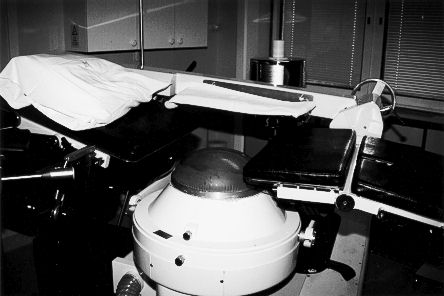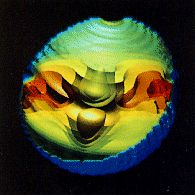
| Website Home (Menu del Dia) |
If you are experiencing your first stone: This page is intended to give you quick reference to information about kidney stones. DO NOT use this information for making a self-diagnosis. It is not intended as a substitute for a trip to a physician. I assume that the initial attack of pain was enough to persuade you to at least call a doctor. Some kidney stones can cause serious damage to your affected kidney. It is also important to have your stone analyzed to determine its content so that your physician can take dietary and/or medical measures to prevent further stones from forming. Remember that 60% of people who have had one stone have another within 7 years. According to Laura Saelinger's research (see links below), if you've had one or more kidney stones, you stand a 10% chance of having another each year and a 75% chance of having another within your lifetime. These are not good statistics, so if you're suffering from your first stone, right now is a good time to make lifestyle changes for prevention of more stones.
U.S. Department of Human Resources Kidney Stone Pamphlet
Health Features -- Kidney Stones Treatable and Sometimes Preventable
Nephrolithiasis - Laura Saelinger -- This page discusses Definition, Diagnosis, and Prevention.
National Institutes of Health Consensus Development Conference Statement -- Gopher link for information on treatment and prevention of kidney stones
Food for Thought --- "Preventing Kidney Stones - A New Track" -- Increasing calcium in your diet may actually help prevent development of calcium oxalate kidney stones.

An extracorporeal shock wave lithotripter, a device that emits high frequency sound waves to shatter kidney stones in the ureters. This procedure is non-invasive, although anesthesia is used to prevent discomfort, and a stent may be inserted to keep the ureter open while it heals. If successful, the shattered stone(s) typically passes in the urine within a few days to a week.

Stress patterns in a kidney stone undergoing bombardment by sound waves.
Go home.
Return to the Nephrolithiasis (aka Kidney Stone) Page™
Go to the email archive of the Nephrolithiasis (aka Kidney Stone) Page™
Go to the Kidney Stones Fact Page